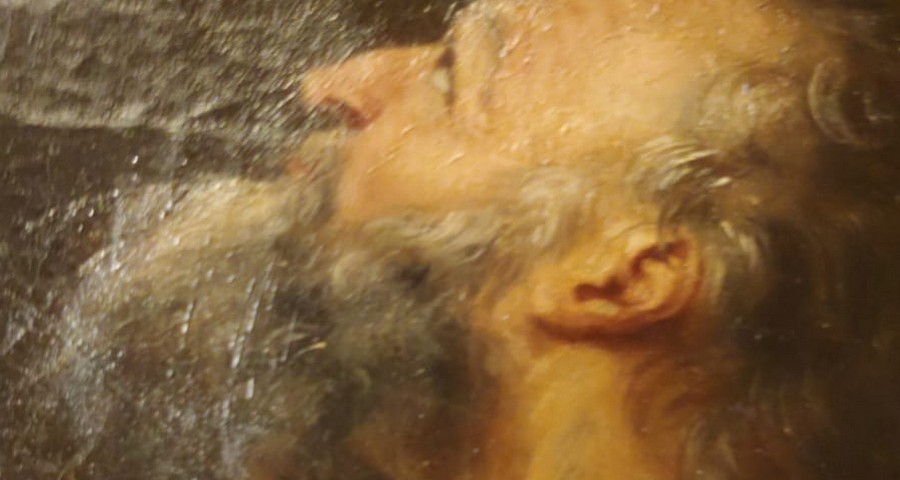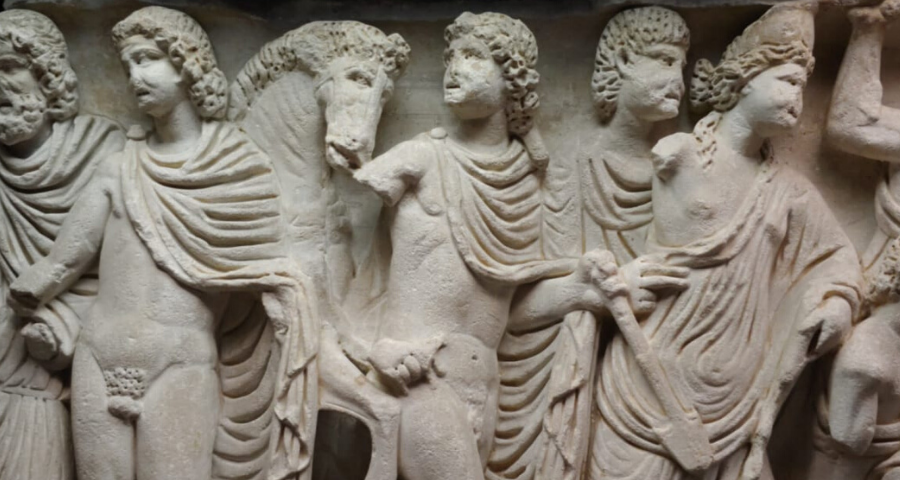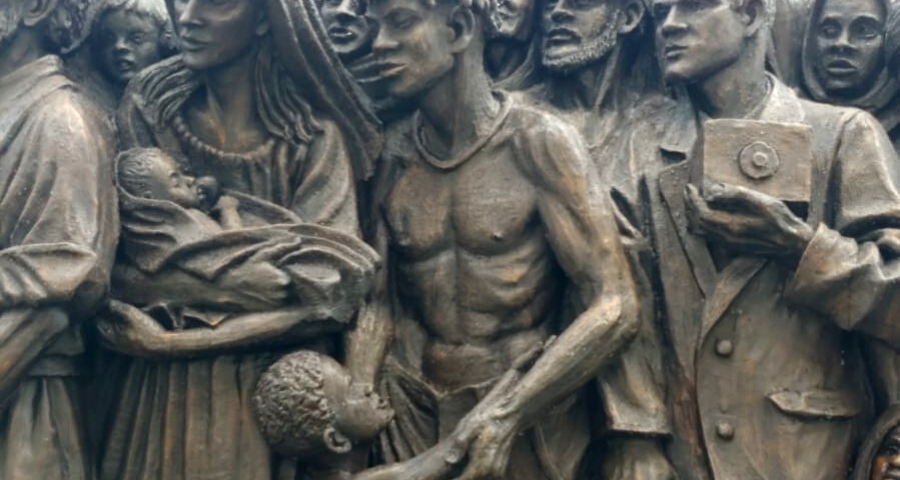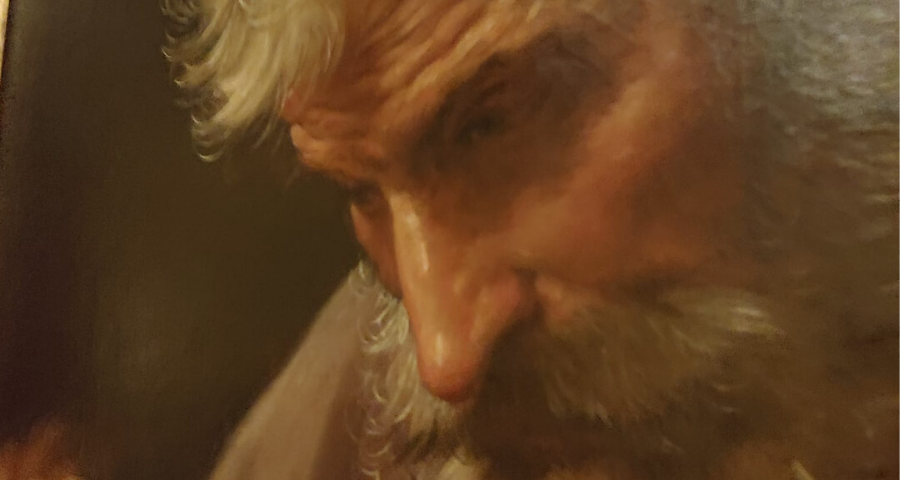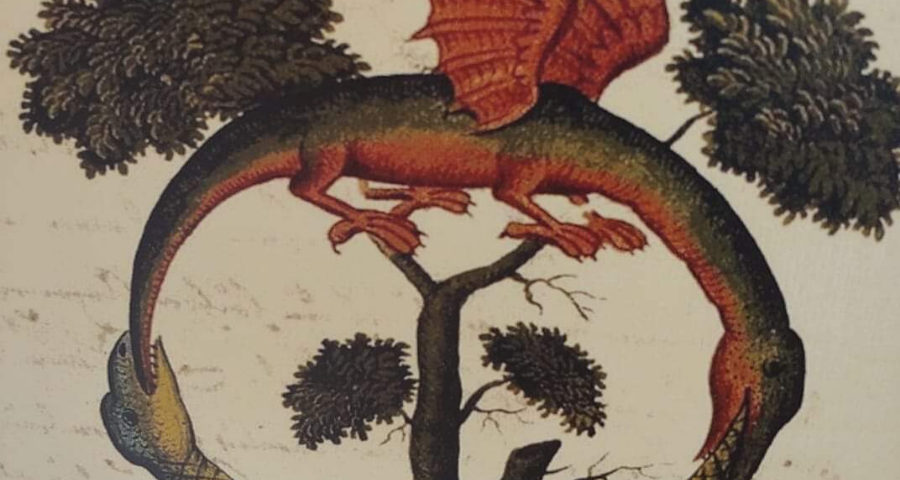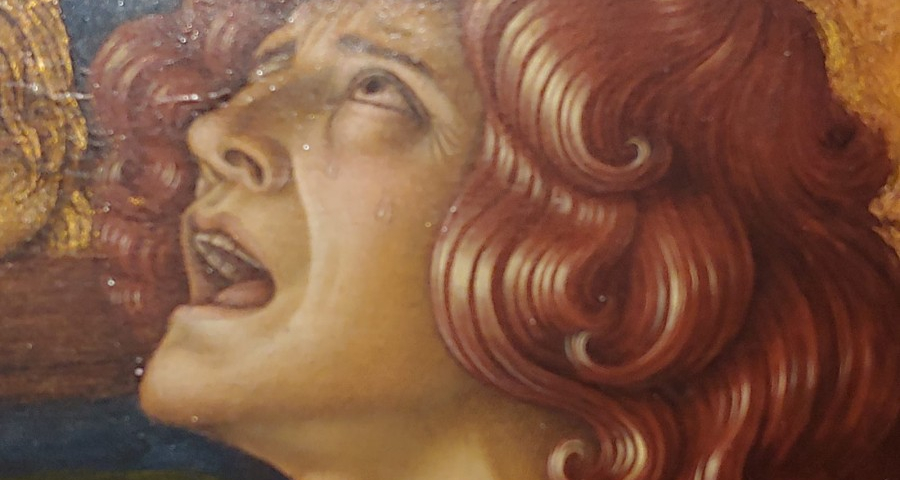Prophecy is history/13 - No group exceeds the individual in terms of dignity, at most, it can equal it
by Luigino Bruni
Published in Avvenire 01/09/2019
« All bodies together, and all the spirits together, and all their consequences and results, are not worth a minimum fit of charity. This is of an infinitely higher order »
Blaise Pascal, Thoughts
The duel on Mount Carmel between Elijah and the prophets of Baal reminds us, in backlight, that truth does not coincide with victory, and that those who announce the truth call for making a choice, never for idolatry.
In this story, one the most well-known stories in ancient religious literature, the blessed number is the number one. With Elijah, alone against the hundreds of prophets of Baal, and Obadiah the only saviour of prophets, the Bible tells us that in many terrible crises salvation comes because there is one just man left who saves everyone. In some decisive moments, the critical mass is one. Noah, Abraham, Moses, the prophets, Elijah, Obadiah, Mary and Jesus: no matter how important and beautiful the "we" is, the Bible also exalts the "I". The us cannot save anyone if there is not at least one I within its heart that obeys a voice and acts freely. A just me is the leaven of the good mass of us. This is the root of that personalist principle at the centre of Western humanism, which today, with the fascination exercised by new us, continues to repeat to us that no group exceeds the single person in dignity; at most it can equal it. When it comes to the "calculation of dignity", the rules of arithmetic do not apply to human groups. The value does not increase with the sum, because the first addend already has an infinite value - here one plus one plus one is always only one
During a terrible and very long famine, while a bloody queen is exterminating the prophets of YHWH, one man saves them: «Now the famine was severe in Samaria, and Ahab had summoned Obadiah, his palace administrator. Obadiah was a devout believer in the Lord. While Jezebel was killing off the Lord’s prophets, Obadiah had taken a hundred prophets and hidden them in two caves, fifty in each, and had supplied them with food and water» (1 Kings 18, 2-4). Obadiah is a friend of the prophets. Like the Ethiopian Ebed-Melech, the man who saved Jeremiah from the cistern (Jeremiah 38), even now we meet a man, a "palace administrator" or "butler", who saves the prophets from death. Even the history of religions and civilization knows this category of just men, these goel. The prophets have many enemies; but they also have some friends and "saviors". They house them in their Bethany houses, hide them, care for them, console them and believe in them when everyone leaves them. The prophets have these friends, they have at least one, who becomes the squat of bread and the palm of water to avoid dying while crossing deserts. Sometimes they are their parents, a sister. They are not always disciples of the prophets, sometimes they are just friends. A friend of a prophet is worth more than a thousand disciples.
Obadiah meets Elijah, and the dowry with which he presents himself are the one hundred prophets he saved: «I hid a hundred of the Lord’s prophets in two caves, fifty in each, and supplied them with food and water» (1 Kings 18, 13). Elijah meets him: «As Obadiah was walking along, Elijah met him. Obadiah recognized him, bowed down to the ground, and said, “Is it really you, my lord Elijah?” “Yes,” he replied. “Go tell your master, Elijah is here”» (1 Kings 18: 7-8). Obadiah is afraid. Elijah reassures him, and goes: «So Obadiah went to meet Ahab and told him» (1 Kings 18,16). Elijah finally meets Ahab and so we enter one of the most famous and terrible pages of the Bible: the challenge, the so-called ordeal of Mount Carmel between Elijah and four hundred and fifty prophets of Baal. A powerful and epic scene, which enables us to experience first-hand a passage of the religion of those archaic people, suspended somewhere between magic and faith.
«Ahab sent word throughout all Israel and assembled the prophets on Mount Carmel. Elijah went before the people and said, "How long will you waver between two opinions? If the Lord is God, follow him; but if Baal is God, follow him"» (1 Kings 18, 20-21). Elijah proposes a duel between YHWH, the God of Israel and Baal, the local Phoenician-Canaanite god. There are hundreds of prophets on Baal's side; Elijah is alone on the Lord's side. Once again, an unequal fight, another David versus Goliath. However, even in this case, victory is not a matter of strength or numbers. The active principle of these victories is quality, not the quantity. In fact, we come to realize from the rest of the story that the challenge is not between two living gods, but rather between God and nothingness. This victory of YHWH is one of the first monotheistic attestations of Israel. «"Get two bulls for us. Let Baal’s prophets choose one for themselves, and let them cut it into pieces and put it on the wood but not set fire to it. I will prepare the other bull and put it on the wood but not set fire to it. »The god who answers by fire - he is God!"» (1 Kings 18, 23-24).
The prophets of Baal are the first to set their altar, and wait for Baal, the god of lightning, to burn wood for sacrifice. And then "they invoked the name of Baal from morning until noon, shouting:" Baal, answer us! " But there was no voice, no one answered "(1 Kings 18, 26). There was no voice ... That beautiful phrase that accompanies the entire Bible returns once again: the true God is the God with the voice. YHWH speaks, calls, whispers. Idols are false because they have no voice, they are winded and mute. The prophetic frenzy grows, revealing interesting details of those ancient rites: «So they shouted louder and slashed themselves with swords and spears, as was their custom, until their blood flowed» (1 Kings 18, 28). The fire does not ignite us, Baal does not respond. Elijah taunts and mocks them. «"Shout louder!" he said. "Surely, he is a god! Perhaps he is deep in thought or busy, or traveling. Maybe he is sleeping and must be awakened"» (1 Kings 18, 27). While teasing them Elijah “forgets" that many psalms are a cry to "wake up" God, and that the first collective prayer of the Bible was a scream from the slaves so that YHWH, distracted, would remember his promise (Ex 2). Even the greatest prophets can use the most human and most beautiful words learned under the roof of their own home while fighting their opponents in the arena of religious struggle. Just like us.
Then it is Elijah’s turn: «Elijah took twelve stones… He built an altar in the name of the Lord… He arranged the wood, cut the bull into pieces and laid it on the wood. Then Elijah stepped forward and prayed: “Lord, the God of Abraham, Isaac and Israel, let it be known today that you are God in Israel… Answer me, Lord, answer me, so these people will know that you, Lord, are God, and that you are turning their hearts back again.” Then the fire of the Lord fell and burned up the sacrifice, the wood, the stones and the soil» (1 Kings 18, 31-38). The sober essentiality of Elijah's prayer is striking, if compared to the baroque spectacle of the prophets of Baal - the excessive and overly emotional liturgies are almost always a sign of idolatrous faiths. Elijah wins the challenge, and the people exclaim: "The Lord – He is God! The Lord – He is God! "(1 Kings 18, 39). Elijah celebrates his victory by having the four hundred and fifty prophets of Baal slaughtered one by one: «Then Elijah commanded them, “Seize the prophets of Baal. Don’t let anyone get away!” They seized them, and Elijah had them brought down to the Kishon Valley and slaughtered there» (1 Kings 18, 40). A terrible epilogue, as terrible as the whole scene.
The ordeal, or "judgment of God", is a test whose outcome was interpreted as a direct manifestation of the will of the gods. It was widespread in ancient times and in many cultures. In Europe, the ordeals were introduced mainly by the Germanic tribes, in Italy by the Lombard’s and for many centuries, they were tolerated even by the Church. In the ordeal – made of fire, poisons, molten metals ... - those who came out unscathed from the trial were considered just and/or innocent. Facts came about by the will of God. So the strongest in a duel, or the shrewdest to walk on fire, was blessed by God and the bearer of one of his messages. Hence, the strong became even stronger, the weak even weaker. Something very similar to the economic-retributive religion, which read the blessing of God in riches and the curse in poverty, which made the rich blessed twice and the poor cursed twice. The Bible has had to struggle a lot to free itself from this archaic and "naturalistic" vision of faith, and it has only partially succeeded. It has tried to show us that "miracles" are not in themselves proofs of the truth of faith, but only imperfect and always partial signs. Because even the false prophets know how to do miracles, even the magicians in Egypt simulated plagues, and Simon Magus with his gestures "astonished" the inhabitants of Samaria (Acts of the Apostles, chap. 8). Jeremiah was opposed and persecuted by false prophets who invoked the miracle that would save them - it did not materialize.
It took the harrowing experience of the Exile to fully understand that YHWH is not true because he is the winner, but that he continued to be the God of promise even as a defeated God. However, despite the Bible, the Gospels, St. Paul, St. Francis, despite the non-miracle of the cross and the non-ordeal of nails and wood, we are still too tempted to imitate Elijah, to think that our God is true because he is a winner, and then we kill those who have lost. The miracle of fire on Mount Carmel does not prove that YHWH is God. Perhaps it only proves that Baal is an idol, but we knew this before the ordeal. It is not a good thing to "tempt God", another side of the same Bible will say. Also, because we too often set the altars, hold vigils, scream and ask for a miracle that does not come. Just as we are capable of not losing faith when confronted with a child who does not heal and dies, that same true faith cannot be created by any miracle. Also because when faced with a miracle for ourselves, we must always continue to ask God: "Why for us and not for others"?
Hence, the bright side of these dark pages on Mount Carmel is not in the light of the fire that breaks onto the scene, but in the question that Elijah addresses to his people: «"How long will you waver between two opinions? If the LORD is God, follow him; but if Baal is God, follow him"» (1 Kings 18, 20-21). The temptation of idolatry is tenacious, always present and active in the heart of man and woman alike because, unlike atheism, it does not deny God but reduces him first to an idol and then multiplies him - every idolatry is polytheist, because every consumer loves variety in the goods that are on offer. Idolatry does not deny God; it tries to shrink him in order to manipulate him. The prophets tell us: "choose", because, paradoxically, it is better to pass entirely to Baal's side than to add him to the temple placing him next to YHWH. However, we prefer the presence of many small harmless gods to one true and uncomfortable God. This is why idolatry is much more present than faith on earth. When the Son of man returns to earth, he will certainly find idolatry. We do not know if he will find faith. We hope that he will find it at least in one person. And if he comes soon, that we are that one person.
Download pdf article in pdf (79 KB)






